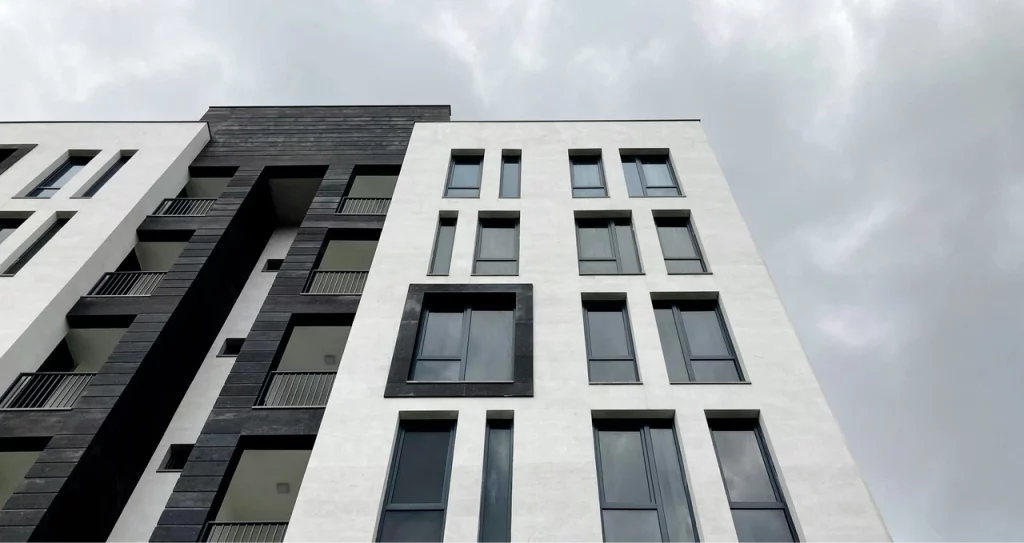
A void period is when a rental property is unoccupied between tenants, leading to no rental income. Landlords still face costs like mortgages and maintenance. In this article, we will explain what they are and offer tips to reduce these gaps to ensure a steady income and maximise your return on investment.
Void periods are times when rental properties are unoccupied between tenancies, leading to a lack of rental income. These gaps can significantly impact a landlord’s profitability, creating financial strain if not handled well. Landlords still face financial obligations like mortgages and maintenance costs during these times, making effective management crucial for maintaining a steady income.
Although void periods can’t be completely eliminated, landlords can minimise void periods to maintain financial stability. Managing void periods by identifying the causes of these gaps and applying strategies to reduce them can significantly improve outcomes.
After all, every day your property remains vacant is a day without rental income, and often with additional expenses.
The duration of void periods can vary significantly depending on several factors, including location and market conditions. For instance, in July 2023, the overall average void period in England was recorded at just nine days. However, by December 2023, this figure had increased to an average of 20 days, matching the previous year’s statistics.
Regional differences also play a role in void periods. In July 2023, the North East of England experienced the shortest void period at just six days, while other regions like the South West had notable variations in different years.

Void periods can have a significant financial impact on landlords, primarily through lost rental income. When a rental property is vacant, it generates no income, but the expenses continue to accrue. These ongoing costs can include council tax, utility bills, and maintenance expenses necessary to keep the property in a rentable condition.
Being aware of these financial implications helps landlords plan effectively. Keeping cash reserves to cover these periods and anticipating the financial burden can aid in minimising any stress that may arise from any downtime in tenancies. Regular maintenance and timely repairs minimise costs associated with void periods, keeping the property attractive to prospective tenants.
Reducing void periods requires proactive and strategic approaches. Early marketing of vacant properties, thorough tenant vetting, and setting a competitive rent price are effective strategies. These steps ensure ample time for advertising and viewings, prevent unexpected vacancies, and attract tenants quickly.
Using a professional property management company can help landlords manage their properties more efficiently and effectively. These professionals bring a wealth of experience and expertise to the table, ensuring that properties are marketed to the right audience and that vacancies are filled quickly. They handle all aspects of the rental process, from lease agreements, and property maintenance through to advertising and tenant screening ensuring that only reliable and responsible tenants are selected.
Here at Prosperity Wealth, we offer a full property management service to all of our off-plan property investors making the process easy and stress-free, allowing you to relax knowing your investment is working for you.
Early marketing of rental properties reduces void periods. Once tenants give notice, landlords should start advertising immediately to allow time for viewings and applications. Using diverse advertising methods, such as local newspapers and online listings, can maximise visibility and attract a broader audience of prospective tenants. Starting the marketing process early and using various advertising channels can significantly reduce the time properties remain vacant.
Thorough tenant vetting ensures reliable tenants and prevents unexpected vacancies. Comprehensive background checks help identify tenants with a history of timely rent payments and property care. This process includes verifying employment, checking credit scores, and contacting previous landlords for references.
Selecting a reliable tenant reduces the likelihood of tenant-related issues that could lead to early lease terminations or property damage. Proper property vetting of tenants ensures a steady rental income and contributes to a positive tenancy experience for both landlords and a new tenant.
Setting a competitive and fair rent price avoids prolonged void periods and attracts tenants quickly. Overcharging can deter tenants and lead to extended vacancies. Thorough research on current market value helps landlords set a realistic rent price that aligns with the local rental market.
A fair rent based on market research attracts more tenants and ensures the property doesn’t remain vacant for long. Including incentives like discounts or utility bills in the tenancy agreement can also make the property more appealing.

Maintaining and presenting rental properties in excellent condition attracts and retains tenants. Regular maintenance keeps the property appealing and prevents small issues from becoming costly repairs. A well-maintained property is more likely to attract high-quality tenants who appreciate and care for their living space.
Effective property upkeep includes cleanliness, functional amenities, and aesthetic appeal. Tenants have increasing expectations, so landlords must meet or exceed these standards. Regular inspections and touch-ups ensure the property remains in top condition, ready to impress prospective tenants.
Regular property inspections identify early issues and maintain the property’s attractiveness. These inspections help landlords catch maintenance problems before they become major issues, ensuring the property remains appealing to current and potential tenants.
Routine inspections also build rapport with tenants, allowing landlords to understand their future plans and assess the property’s condition. Emphasising these inspections helps maintain an attractive rental property and reduces void periods.
Preparing the property for viewings attracts potential tenants. Creating a welcoming atmosphere during viewings can greatly impact prospective tenants’ interest. Cleanliness is essential; ensure the property is tidy and well-maintained to impress.
Effective staging enhances the property’s appeal, making it easier for tenants to visualise living there. Thorough preparation for viewings increases the likelihood of securing new tenants quickly and minimising void periods.
Many of our investors prefer to entrust the daily management of their investment properties to us. We provide a range of lettings and management packages, offering services from tenant screening and reference checks to comprehensive property management, including maintenance and rent collection.
Our expertise helps our investors eliminate barriers to property ownership, ensuring a smooth and profitable buy-to-let experience. We offer unique monthly payment plans to help investors manage their finances and build a deposit for property investment including finding and securing mortgages tailored to your investment needs.
By choosing to invest with Prosperity Wealth, you gain access to our extensive expertise in property investments. Reach out to us today by phone at +44 (0) 121 237 4610 or email [email protected] to get started on your investment journey.
Void periods are intervals when rental properties are unoccupied and, consequently, not generating any rental income. Understanding these periods is crucial for property owners to manage their investments effectively.
Void periods significantly impact landlords’ finances not only because of lost rental income but also because of ongoing costs such as council tax, utility bills, and maintenance expenses, which can quickly add up.
Landlords can effectively reduce void periods by implementing early marketing for vacant properties, conducting thorough tenant vetting, setting competitive rent prices, maintaining properties regularly, and collaborating with professional letting agents. Adopting these strategies can lead to quicker tenant placements and sustained occupancy.
Prosperity Wealth can assist landlords in managing void periods by providing services like tenant screening, property management, and financial planning, which help to ensure consistent rental income. This proactive approach minimises the risk of prolonged vacancies.